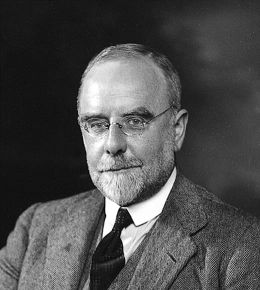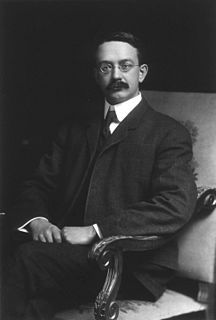A Quote by E.S. Russell
From the point of view of the pure morphologist the recapitulation theory is an instrument of research enabling him to reconstruct probable lines of descent; from the standpoint of the student of development and heredity the fact of recapitulation is a difficult problem whose solution would perhaps give the key to a true understanding of the real nature of heredity.
Related Quotes
I established the opposite view, that this history of the embryo (ontogeny) must be completed by a second, equally valuable, and closely connected branch of thought - the history of race (phylogeny). Both of these branches of evolutionary science, are, in my opinion, in the closest causal connection; this arises from the reciprocal action of the laws of heredity and adaptation... 'ontogenesis is a brief and rapid recapitulation of phylogenesis, determined by the physiological functions of heredity (generation) and adaptation (maintenance).
Heredity is to-day the central problem of biology. This problem may be approached from many sides - that of the breeder, the experimenter, the statistician, the physiologist, the embryologist, the cytologist - but the mechanism of heredity can be studied best by the investigation of the germ cells and their development.
I shall borrow two words used for a slightly different purpose by the great demographer Alfred Lotka to distinguish between the two systems of heredity enjoyed by man: endosomatic or internal heredity for the ordinary or genetical heredity we have in common with animals; and exosomatic or external heredity for the non-genetic heredity that is peculiarly our own - the heredity that is mediated through tradition, by which I mean the transfer of information through non-genetic channels from one generation to the next.
This example illustrates the differences in the effects which may be produced by research in pure or applied science. A research on the lines of applied science would doubtless have led to improvement and development of the older methods - the research in pure science has given us an entirely new and much more powerful method. In fact, research in applied science leads to reforms, research in pure science leads to revolutions, and revolutions, whether political or industrial, are exceedingly profitable things if you are on the winning side.
Religion shows a pattern of heredity which I think is similar to genetic heredity. ... There are hundreds of different religious sects, and every religious person is loyal to just one of these. ... The overwhelming majority just happen to choose the one their parents belonged to. Not the sect that has the best evidence in its favour, the best miracles, the best moral code, the best cathedral, the best stained-glass, the best music when it comes to choosing from the smorgasbord of available religions, their potential virtues seem to count for nothing compared to the matter of heredity.
During all those years of experimentation and research, I never once made a discovery. All my work was deductive, and the results I achieved were those of invention, pure and simple. I would construct a theory and work on its lines until I found it was untenable. Then it would be discarded at once and another theory evolved. This was the only possible way for me to work out the problem.
The advances of biology during the past 20 years have been breathtaking, particularly in cracking the mystery of heredity. Nevertheless, the greatest and most difficult problems still lie ahead. The discoveries of the 1970's about the chemical roots of memory in nerve cells or the basis of learning, about the complex behavior of man and animals, the nature of growth, development, disease and aging will be at least as fundamental and spectacular as those of the recent past.
I think that the best movies are made, not from a point of view that depends on your personal history, whether it's the color of your skin or the politics that you had or the place that you come from, but from a point of view of an understanding of human nature, an understanding of history, and an understanding of what motivates people.
A rare book at once of great importance and wonderful to read.... Gould presents a fascinating historical study of scientific racism, tracing it through monogeny and polygeny, phrenology , recapitulation, and hereditarian IQ theory. He stops at each point to illustrate both the logical inconsistencies of the theories and the prejudicially motivated, albeit unintentional, misuse of data in each case.... A major addition to the scientific literature.
































